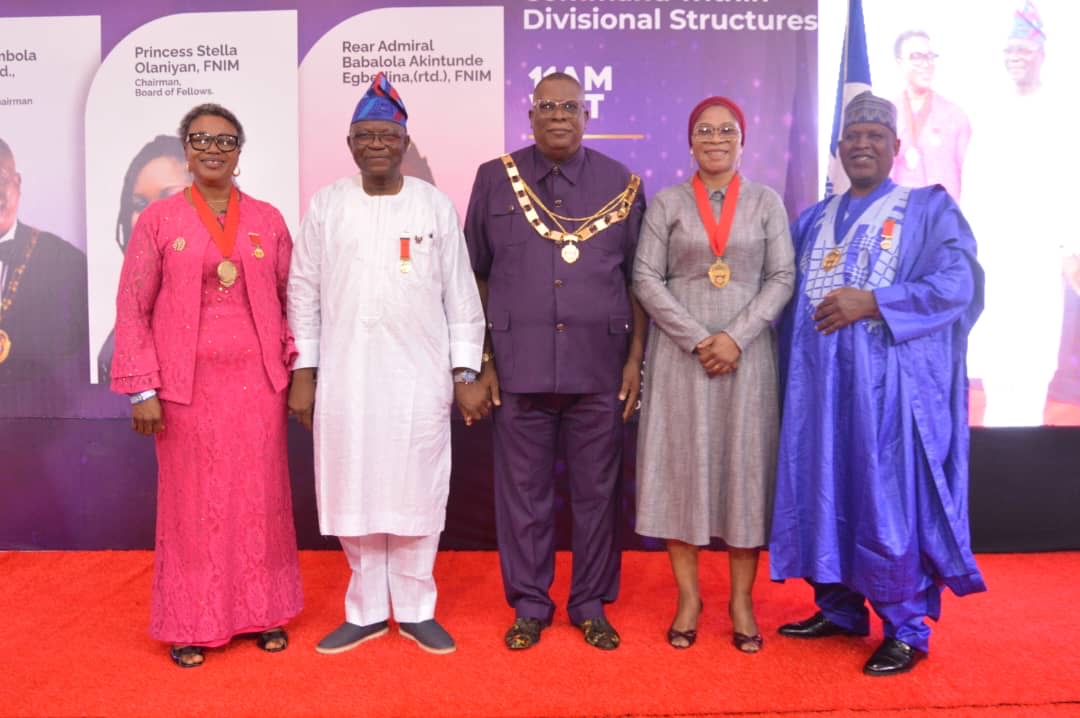By Rukayat Moisemhe
A military strategist, Retired Rear Admiral Babalola Egbedina has stressed the importance of building trust and accountability in management, particularly in decentralised command within divisional structures.
He said this on Thursday at the 2025 Nigerian Institute of Management Chartered (NIM) awards, fellows and spouses’ day luncheon in Lagos.
The event was themed: “Building Trust and Accountability: “The Human Element of Decentralised Command within Divisional Structures”.
Egbedina listed strategies for building trust and accountability in decentralised systems to include clear communication, well-defined roles, autonomy with oversight, regular feedback, performance monitoring, among others.
He noted that the divisional system as practised in the Nigerian Navy offered advantages.
The advantages, according to him, include enhanced operational efficiency, leadership development, improved personnel welfare, flexibility, innovation, and clear accountability.
He also highlighted the central role of the human element in management.
Egbedina said that while technology and Artificial Intelligence (AI) provided valuable tools, they could not replace the originality and uniqueness of the human element in organisations.
According to him, focusing on personal welfare and development within divisions directly improves efficiency, while also fostering leadership skills and stronger team cohesion.
The expert urged managers to remain informed and broaden their perspectives by reading quality publications and engaging with diverse sources of knowledge.
“No matter the allure that Artificial Intelligence (AI) possesses, it cannot replace the originality and uniqueness of the human element in the organisation.
“As for managers, they should stay perpetually informed by reading quality publications and anything else you can lay your hands on to broaden their perspectives,” he said.
NIM President , Retired Commodore Abimbola Ayuba, charged the newly inducted fellows not to be contented with just adding the appellation (FNIM) to their names.
He said it was a call to higher responsibility and service to the institute, the management profession and the nation.
Ayuba said for fellows to avail the institute with their professional competencies, they had been constituted into sectoral groups.
“The faculties are expected to identify issues and challenges in areas related to their disciplines, propose studies of such issues with a view to making policy recommendations to government,” he said.
Ayuba also lauded the institute’s elder statesmen and women conferred with life membership award for keeping faith with the institute over the years.
He said to qualify for the award, a member must have attained the age of 70, served the institute and the Nigerian Society selflessly and adjudged to be above reproach, among other obligations.(NAN)
Edited by Yinusa Ishola/Buhari Bolaji











